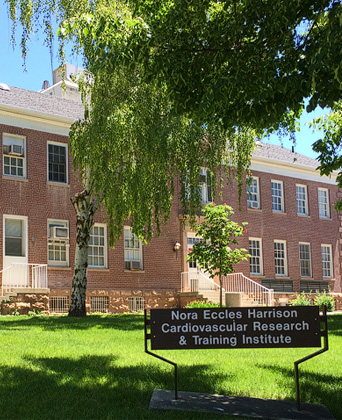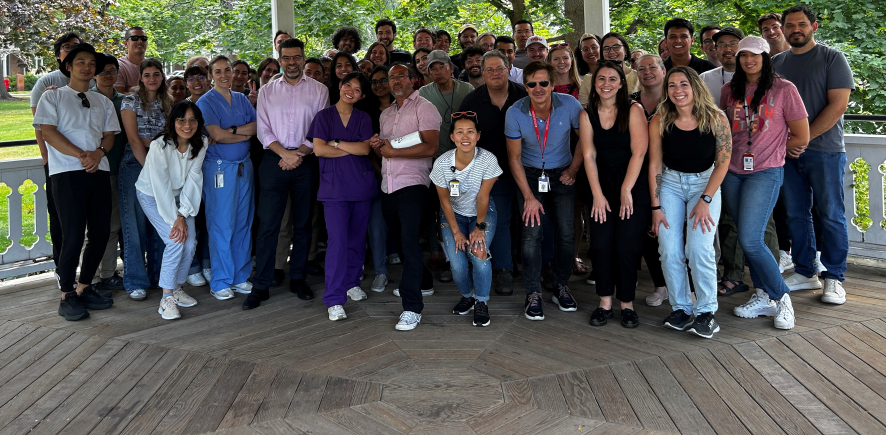CUTTING EDGE CARDIOVASCULAR RESEARCH
The Nora Eccles Harrison Cardiovascular Research and Training Institute (CVRTI) delivers cutting-edge cell-to-bedside research and education of cardiovascular disease, which is one of the leading causes of death worldwide. At the CVRTI, we are both developing new insights into the biology of heart muscle cells, and developing novel therapeutics for patients with heart failure and cardiac arrhythmias such as sudden cardiac death.
Located at the University of Utah, the CVRTI nucleates a campus wide, multidisciplinary team of eighteen individual investigator laboratories who are both scientists and physician scientists. The research of the laboratories spans from basic muscle biology and channel electrophysiology to metabolism and genetics. Founded in 1969, the CVRTI is one of the oldest cardiovascular institutes in the country, and its research has already impacted clinical care from development of the first artificial heart, to the genetic basis of long QT arrhythmias, to using electricity to map heart dimensions for arrhythmia ablation, to myocardial recovery, to novel therapeutics for heart failure and sudden cardiac death. At present, the CVRTI is the largest freestanding collection of cardiac muscle biology, metabolism, vascular and electrophysiology researchers in the United States and serves as the physical location and central hub for cardiovascular research at the University of Utah.

CVRTI Seminar Series -RIPS
Thursday, November 13, 2025
12:00 PM – 1:00 PM MT

Cardiovascular Applications of Lyophilized Human Amniotic Fluid (Lyo-hAF)
Grace Mitchell, MD, PhD
Research Assistant Professor
Selzman Laboratory, CVRTI

T-Tubule Microdomains Promote Protective Mitophagy in Failing Hearts
Bradley Richmond, BS
PhD Candidate
Hong Laboratory, CVRTI
Join us in person only at
Eccles Health Sciences Education Building, EHSEB, Bldg. 575, Room 1700, 25 S. 2000 E. (Lunch Provided)
Latest Blog
Humans spend roughly one-third of their lives asleep. Skimping on sleep over the long haul can lead to dire health consequences. Problems can include increased risk of heart disease, among other health problems. Sleep apnea in particular is a breathing-related disorder that has been linked to a higher risk of heart problems.



.png)








